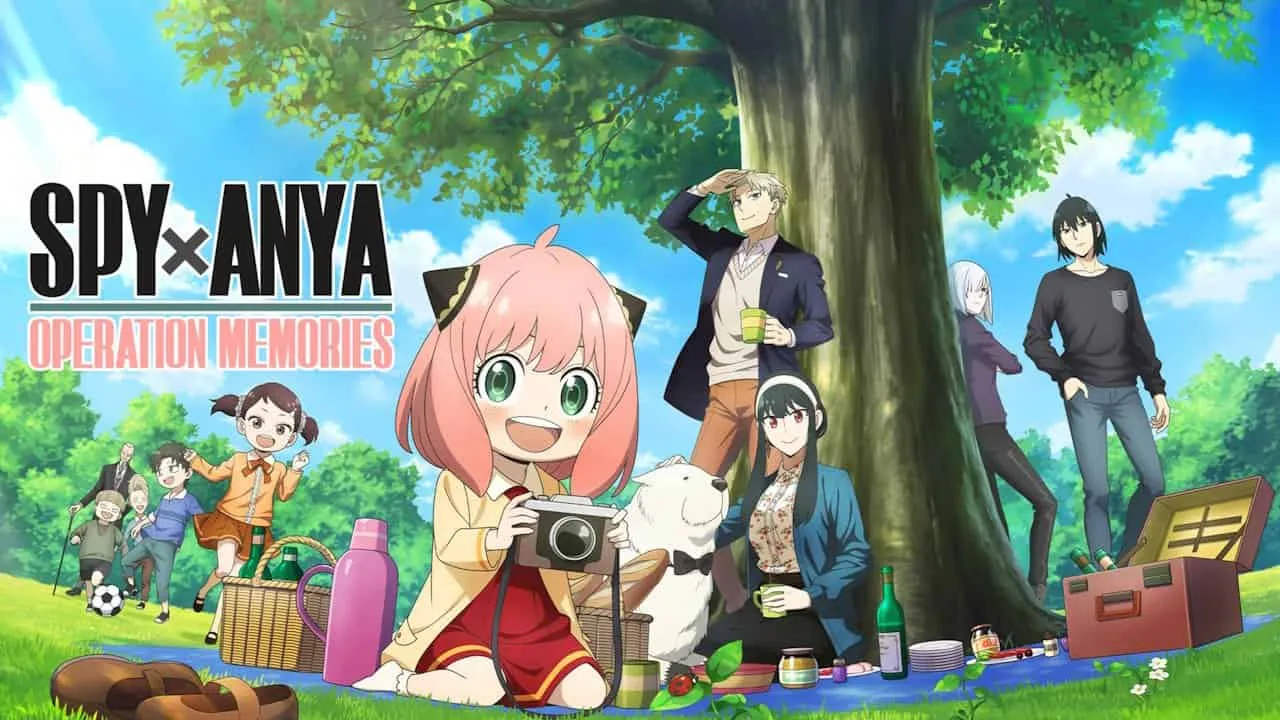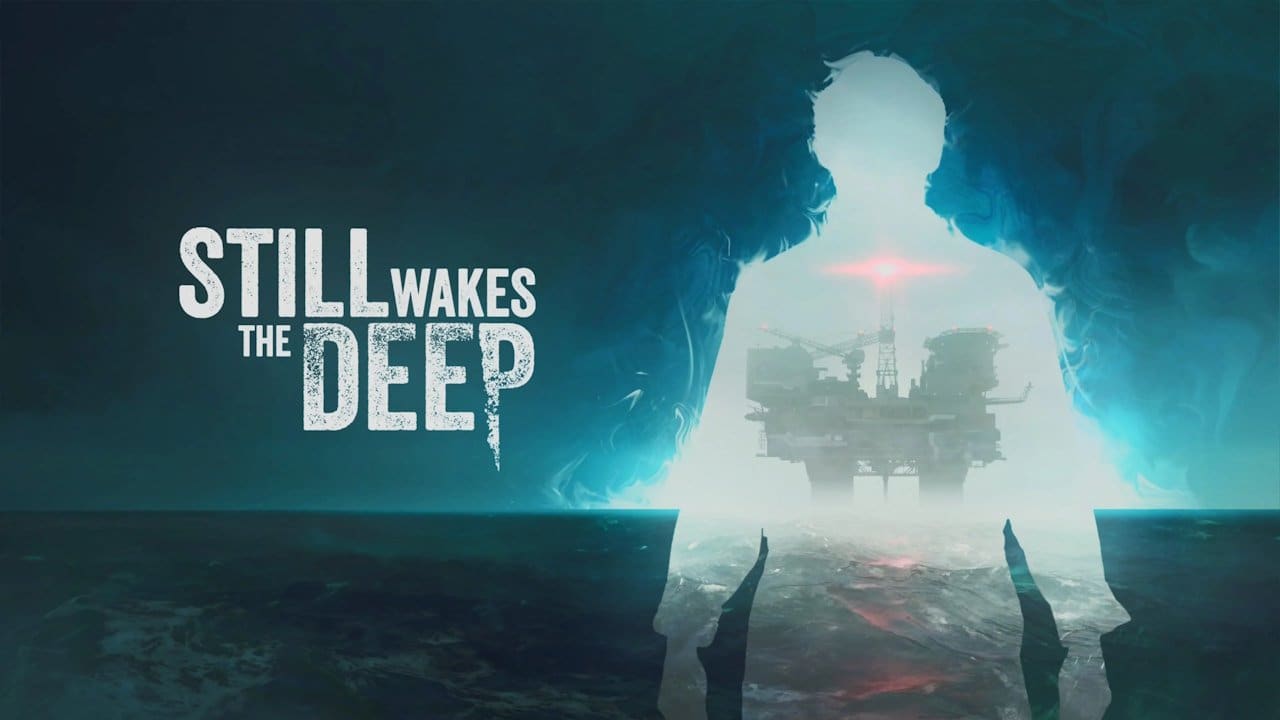Outriders Review – Not Just Another Destiny Clone

Official Score
Overall - 80%
80%
You will struggle to find another third-person shooter that has innovated as much on the formula as Outriders, not since Gears of War took the genre to new heights. The combat is absolutely incredible, the classes ooze with potential and development, the world is gritty and engaging, and the ability to enjoy all of this alongside good friends just heightens the entire experience.
Square Enix and People Can Fly look to bring their gritty sci-fi shooter to the forefront of the third-person shooter space with Outriders. Featuring an innovative approach to combat, a wonderfully crafted world, an intriguing story, and a deeply detailed class system, is there room for yet another looter shooter, or is Outriders yet another failed attempt to cash in on Destiny’s success?
Outriders Review – Not Just Another Destiny Clone
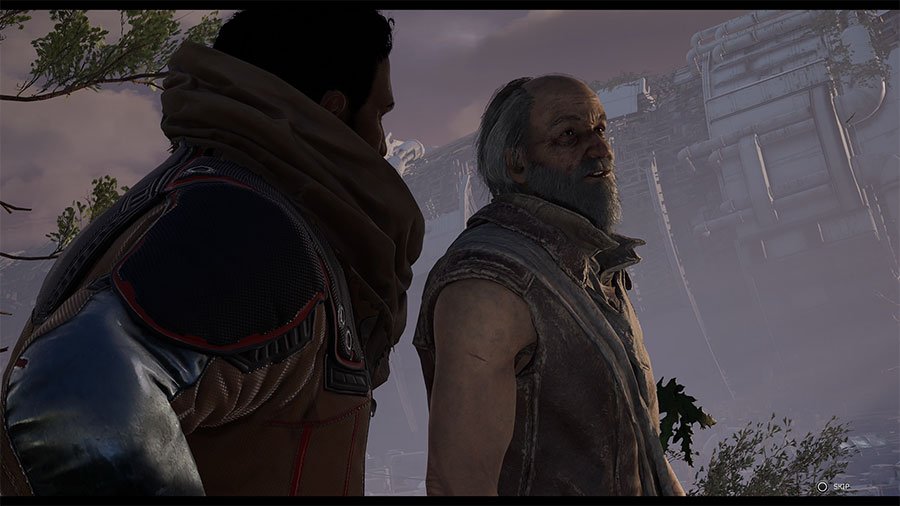
Earth has been destroyed, and humanity has been pushed to near extinction. In a last-ditch attempt to save the species, the ECA (Enoch Colonization Authority) sends two massive ships to colonize Enoch, an Earth-like planet nearly 100 years away. A team of elite soldiers known as the Outriders are the first to touch down, but they quickly find the planet engulfed in a scientific Anomaly. Destroying all electronics, wiping out colonies, and mutating plant and animal life into horrid monstrosities, humanity’s last hope looks grim.
That’s where you come in.
On its surface, it’s very easy to dismiss Outriders as just another Destiny clone. While certain aspects of that assumption are correct, especially when looking at the nearly identical user interface, in reality People Can Fly has clearly had a very different philosophy when developing this title.
One of the primary elements that helps Outriders stand out from the crowd, and arguably the most important, is its combat. Sure, it’s yet another third-person shooter with loot, but the concept, design, and execution of the combat is refreshingly brilliant from start to finish. At the beginning of the adventure, players can choose between four unique classes: Technomancer, Pyromancer, Trickster, or Devastator. Despite this, there’s no specific archetypes or holy trinity restricting group makeup.
Each class excels in different areas, but none are required for any of the content. You don’t need to worry about finding specific characters with specific builds to tackle the games various boss battles and side quests. Any group of friends can jump into a party, regardless of class choice, and tackle any of the content the game has to offer. This is largely due to the intriguing combination of cover-based shooting and aggressive-based healing.
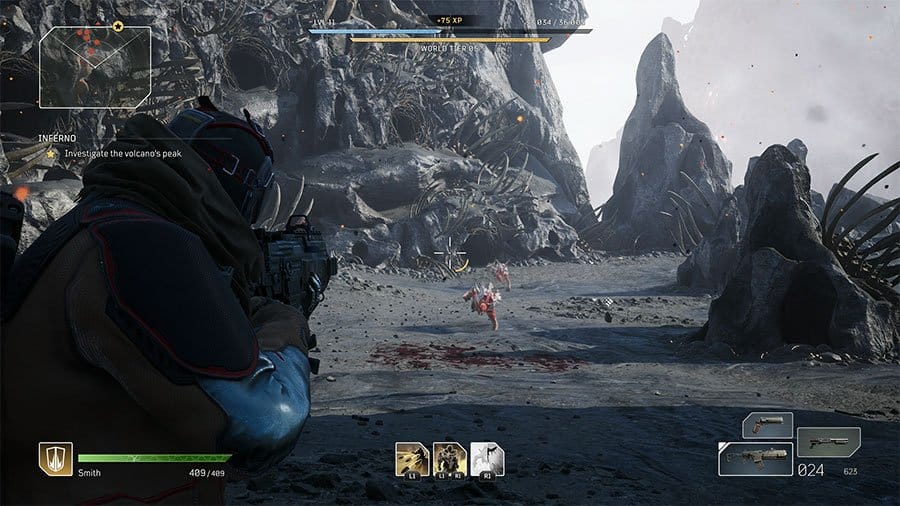
Every battle takes place in carefully crafted battlefields that combine wide open spaces and tightly packed corridors, with barricades and debris the only lifeline between life and death. It’s all too easy to fall into the comfort of the cover-based elements, moving quickly from cover to cover to avoid enemy fire. While this strategy works in places, the plan of relying solely on cover will quickly fall to pieces as the enemy advances at an alarmingly aggressive pace while destroying cover, forcing you to move with carefully placed grenades and abilities and doing everything they can to remove the relative safety of shooting from afar.
Once you unteach yourself that cover equals safety, its true design comes to fruition – and it’s marvelous. Outriders’ core concept of combat is healing via combat. You don’t retreat to a safe corner and load up on potions or healing items, nor do you rely on abilities from other classes to keep you alive. Whether you live or die is completely dependent on your ability to be aggressive with your skills and abilities, creating for an action-packed, adrenaline fueled combat system that makes every battle as challenging as it is rewarding.
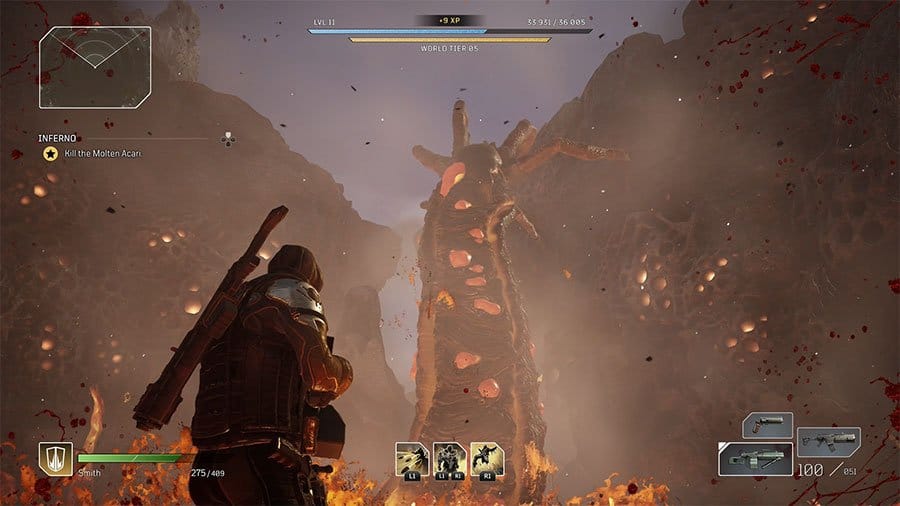
With such an innovative approach to the combat design, it would have been all too easy for the developers to leave it at that. They could have thrown in the regular loot and shoot systems and called it a day, but Outriders does so much more. Unlike other games in the genre, abilities are not an “oh crap” key that you wait to use until the very last minute when you’re knocking at death’s door.
Each recharges at a fantastic pace, allowing you to throw multiple abilities down in the same fight, over and over again. And these are not basic or boring abilities; they turn the tide of battle each time they are used. Playing the Devastator, my starting abilities included a bullet shield that absorbs all projectile damage before throwing it back at nearby enemies, a gravity leap that lets me leap to practically any enemy on the battlefield and turn them into a thick, red mist, and an ability that turned my skin to stone, drastically increasing my resistance to incoming damage.
Knowing when and how to use these abilities is key to survival, but the option to use them consistently, in an out of every fight, makes the combat one of the most engaging and exciting the genre has seen for years. Adding yet further depth and appeal to the entire approach is a gear system that is impactful on a level we rarely see in games that focus on gear score and loot grinding.
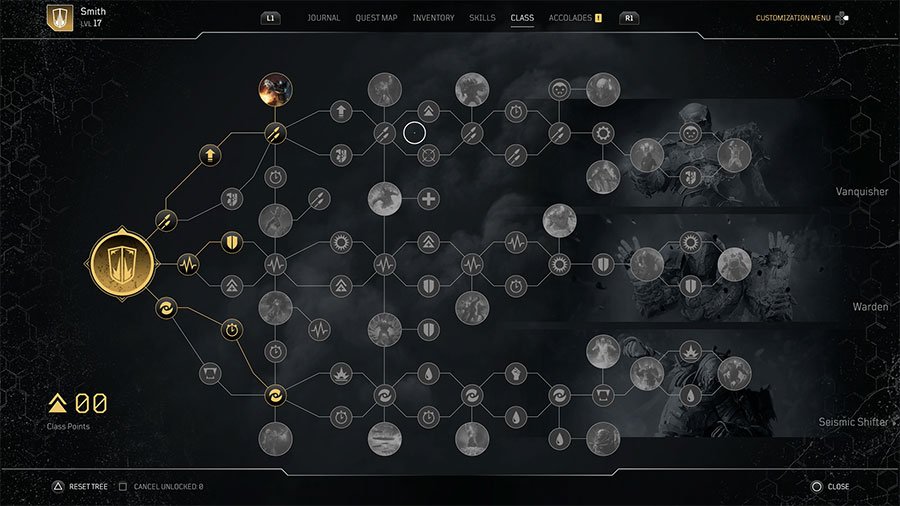
Outriders does have a gear score system. Your weapons indicate your Firepower, Anomaly Power is your abilities, and Health and Armor represent your ability to survive. These represent your ability to attempt content at a higher World Tier, increasing the difficulty of the enemies you encounter and the value of the rewards you receive. It’s the gear, the regular items you pick up time after time, that truly makes Outriders gear grind a worthwhile experience.
All too often in today’s games, we’re grinding hours, days, even weeks at a time to find that 0.5% increase to a stat to perfect our build. It’s dull, repetitive, boring, and only appeals to the most dedicated of players. The gear system in Outriders boasts a far broader appeal with gear that makes a massive difference. I played through the majority of my experience on World Tier 6 and World Tier 7 (the highest being World Tier 15), and I was finding gear with modifications that changed my entire build.
From increasing damage to allowing my bullets to freeze my opponents to increasing the duration of an ability up to 100%, there was no illusion of progression that so many games rely on today. It’s meaningful, it makes a difference, and it makes you feel a total badass every step of the way.
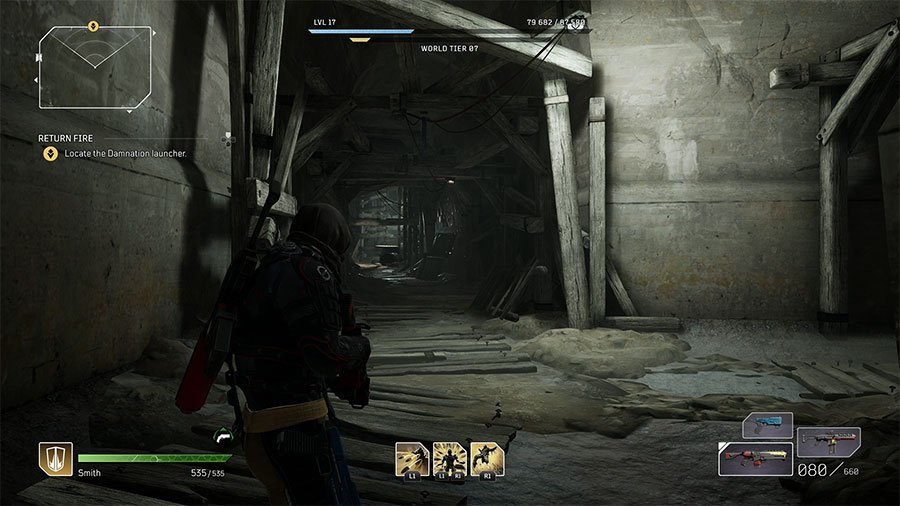
Outriders boasts a beautifully crafted game world, one with meaningful characters, rewarding encounters, and a variety of content. However, there are some areas where it falls short. In an effort to provide additional content to players, much of the side content can be repeated. Not a terrible idea in concept, but it does retract from the emotional impact of the characters and stories you encounter.
One particular quest comes to mind. I helped an old man clear out his home of bandits so he could return and see the graves of his family. Learning of his journey and struggles offered a more personal approach alongside a main story with a much bigger scope, but much of that was completely undone after I completed the quest. He returned to his original location and spoke with me as if nothing happened. In another quest, a character actually died, only to return to offer the quest again. While many players will appreciate the opportunity to tackle the content again, I personally felt it made much of the side content inconsequential, only offering a brief emotional experience before instantly reminding you that it’s just a game.
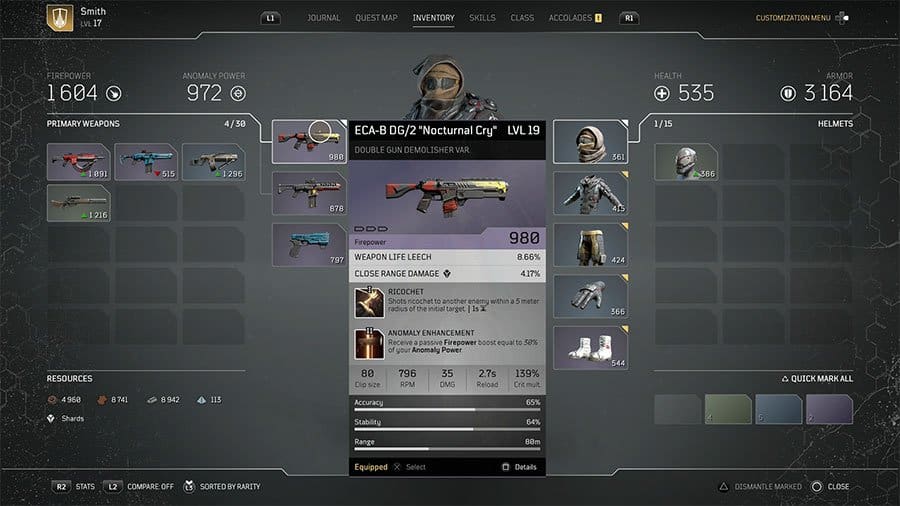
Outriders main narrative is rather short. Depending on World Tier and other variables, you can complete the main story in 12-16 hours, which is why I’ve largely avoided any core details of the campaign. However, the story is worth the entry price alone. Rising conflicts between the various Enoch colonies, the constant threat of the Anomaly and the monstrosities it creates, the dwindling light of humanities last hope; it’s a serious and sometimes dark story that’s worlds apart from Bulletstorm. For those more interested in the long-term, there’s a of end-game content between maxing out your build, finding better loot, raising the World Tier, and completing challenging Expeditions.
If it wasn’t for the technical problems Outriders could well have taken the crown for the best release of the year thus far. While my single player adventure was nearly completely clear of any technical issues or bugs, multiplayer is a little rough around the edges. Several crashes, falling through the floor, getting booted back to the lobby. The connection issues are a huge problem at the moment but once these are ironed out, there’s a real gem in Outriders.
You will struggle to find another third-person shooter that has innovated as much on the formula as Outriders, not since Gears of War took the genre to new heights. The combat is absolutely incredible, the classes ooze with potential and development, the world is gritty and engaging, and the ability to enjoy all of this alongside good friends just heightens the entire experience.


